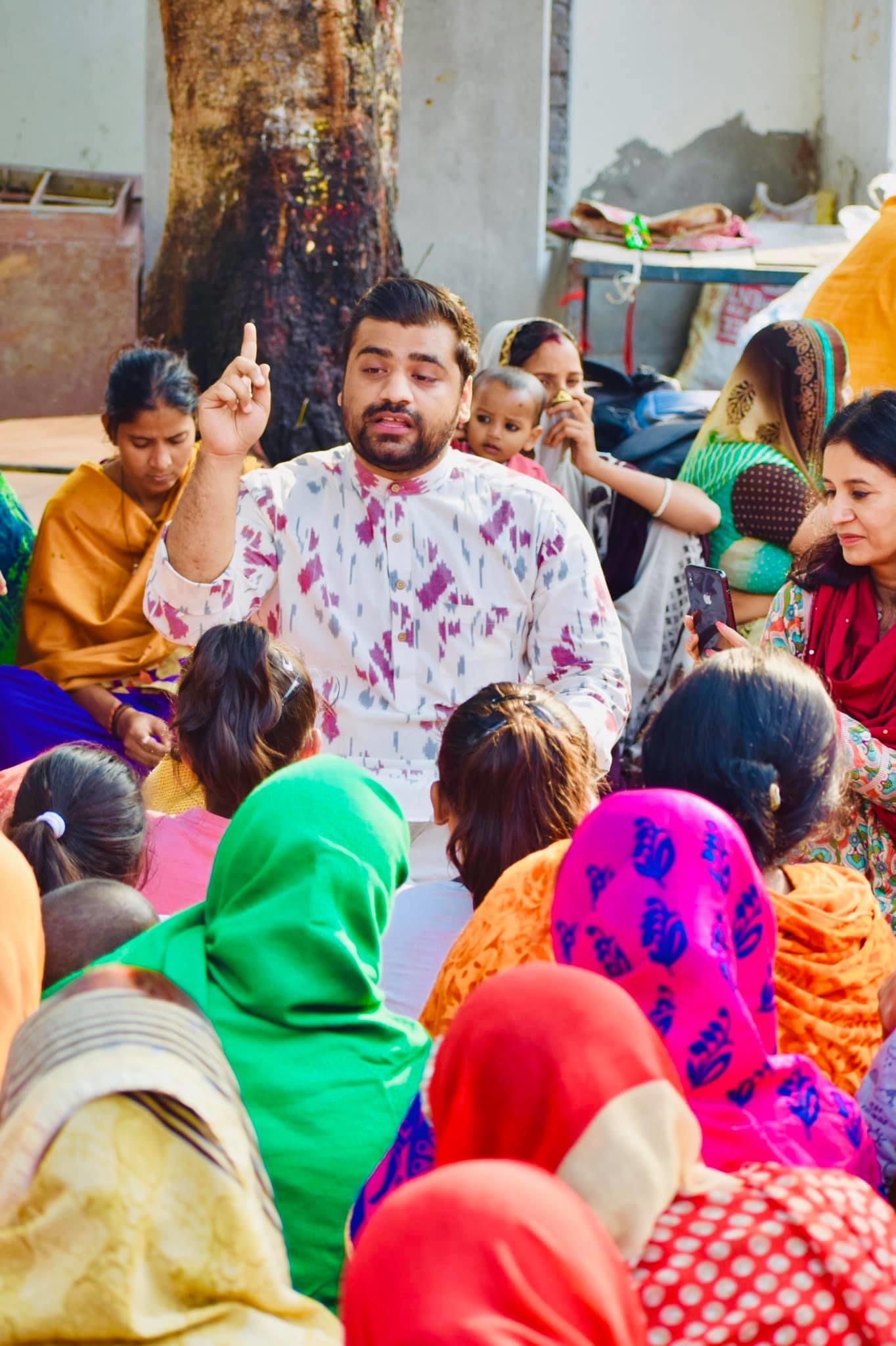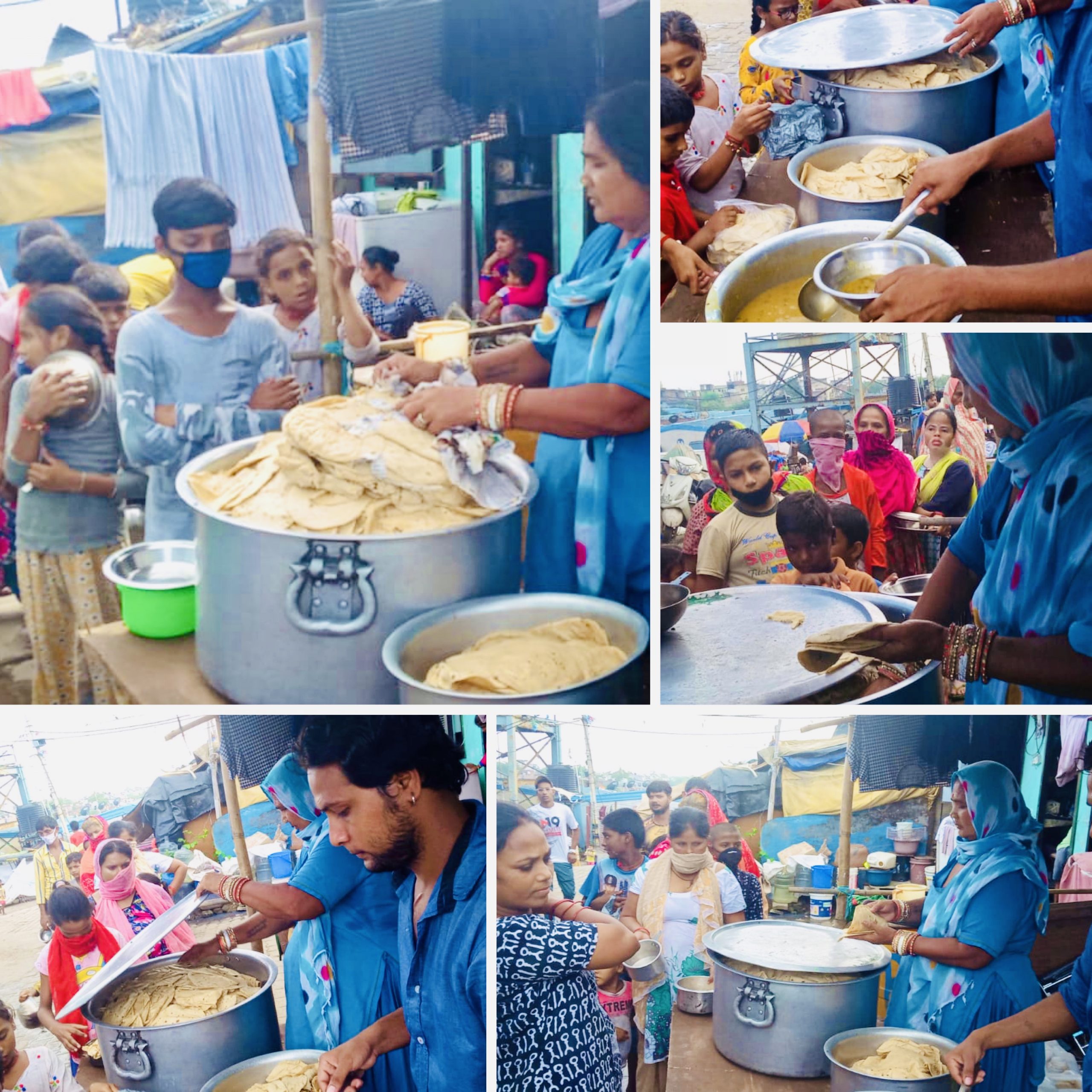Each One Teach One
Humans for Humanity started the “Each One Teach One” project to give children basic education. When we see that a child is fit to go to school, we get them admitted into a government or MCD school. With “Each one Teach one”, we started doing extracurricular activities like giving them mid-day meals, and kids over 16 are getting paid 100 rupees per day for block printing as positive reinforcement, while younger kids do activities like pottery, sketching, or painting.
Additionally, their parents are happy about the books, stationery, education, and mid-day meals they get, as well as the values and manners they learn. All money collected was given to the children. “Each One Teach One” has been halted due to the COVID-19 pandemic, but we hope to restart it soon.


Sustainable Menstruation
Humans for Humanity is involved in a major upcoming project for our first centre in Delhi. This will be a centre that will have a semi-automatic machine for making eco-friendly, sustainable sanitary pads.
Sustainable menstruation refers to the use of environmentally friendly and responsible menstrual products. These pads will be made from Bamboo pulp. Thorough research is done on what kind and type of machine and raw material are required and the shape and quality of the produced pads. According to Menstrual Health Alliance India, a sanitary pad could take 500 to 800 years to decompose because the plastic used is non-biodegradable and can lead to health and environmental hazards.
Biodegradable sanitary napkins can decompose in six to twelve months. These cloth pads can be reused for a year or two. Women in our country are not fortunate enough to afford sanitary napkins. This initiative will help them to have access to sustainable menstruation. It is beneficial for them in the long run. It is more affordable and accessible for all.
Food Distribution Drive
During this lockdown, HFH worked for the benefit of poor people. A lot of people lost their jobs because of Covid 19. And small-wage workers suffered tremendously. When people contacted us, we provided them ration.
Unfortunately, they had no source to cook food. The next day, we started sending them cooked meals. From April till December, we sent food every day to about 1500 people. Approximately 600 families benefitted from this initiative. Being hungry for too long can damage a person’s mental and physical health. It is the responsibility of our society to help unprivileged people.
We tried helping these people during that difficult time. Along with food, we also provided them with masks. It is a global pandemic, and everyone needs to take precautions. We gave them masks and sanitizers. We can find the real essence of life only when we help others. It was a beautiful project by HFH where we could help a lot of people.
